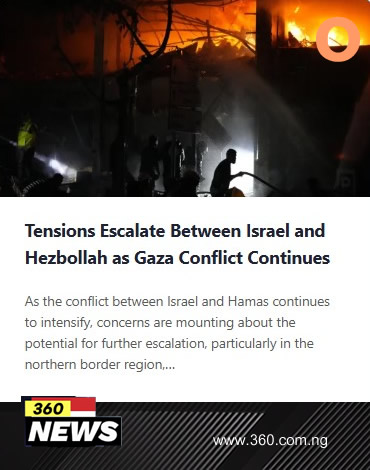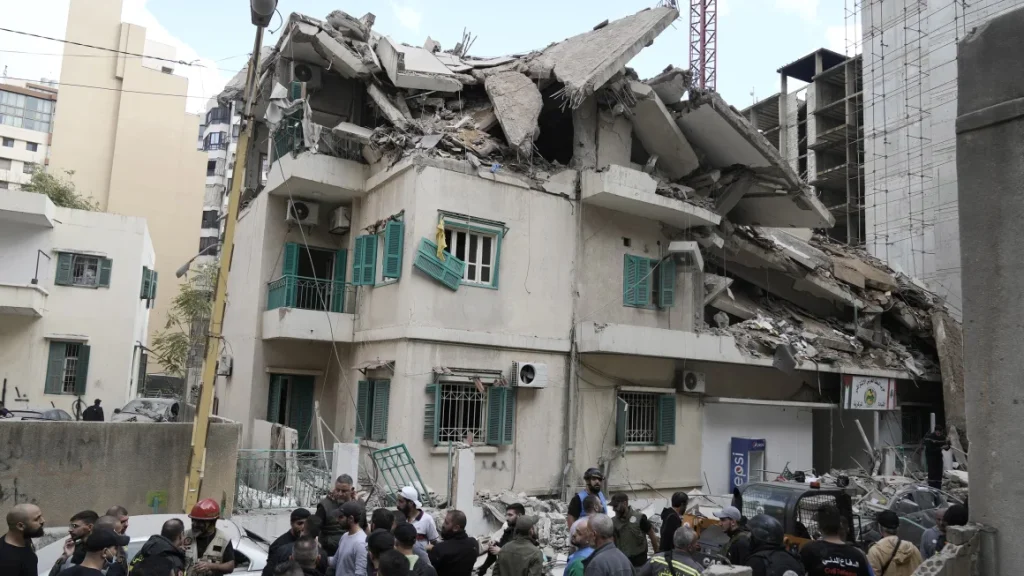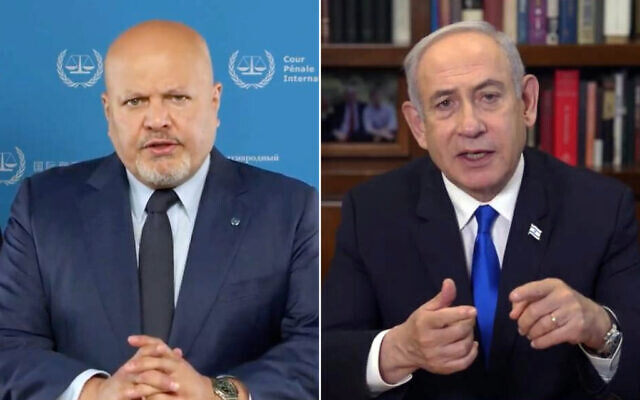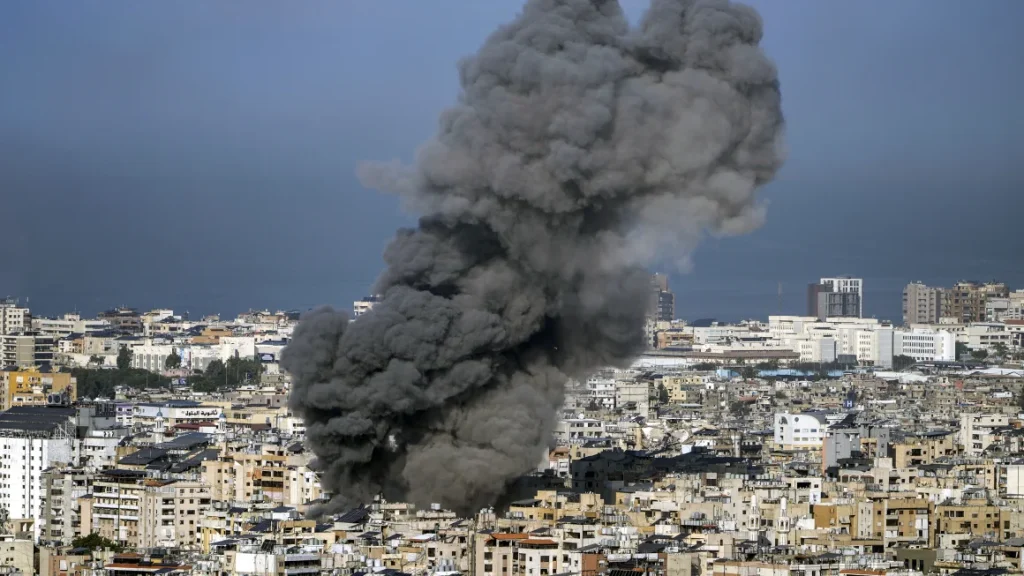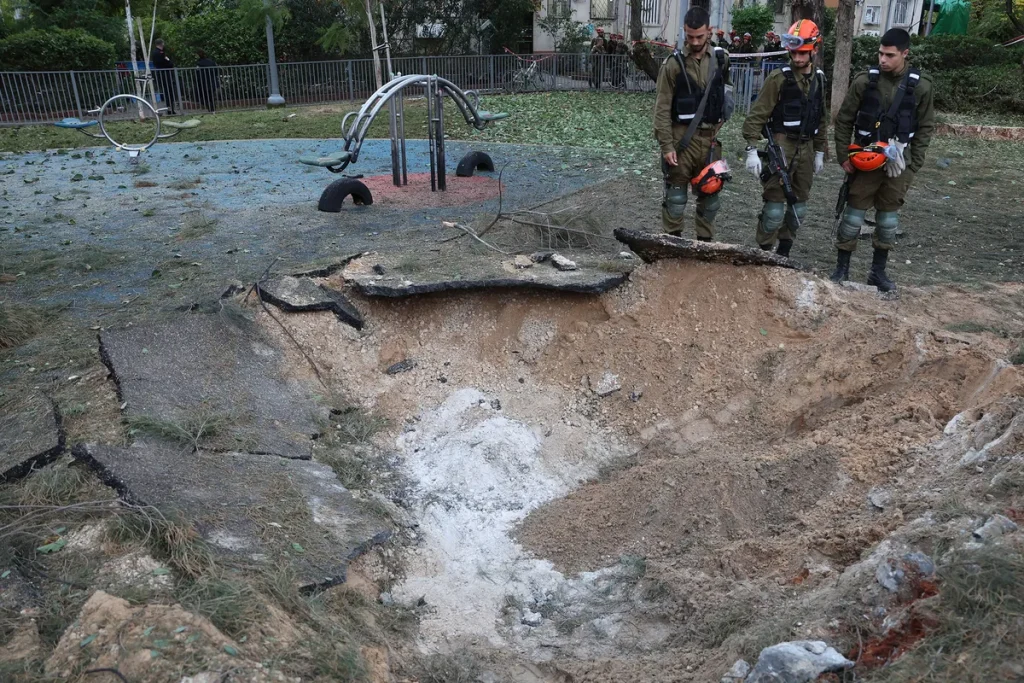Tensions Escalate Between Israel and Hezbollah as Gaza Conflict Continues
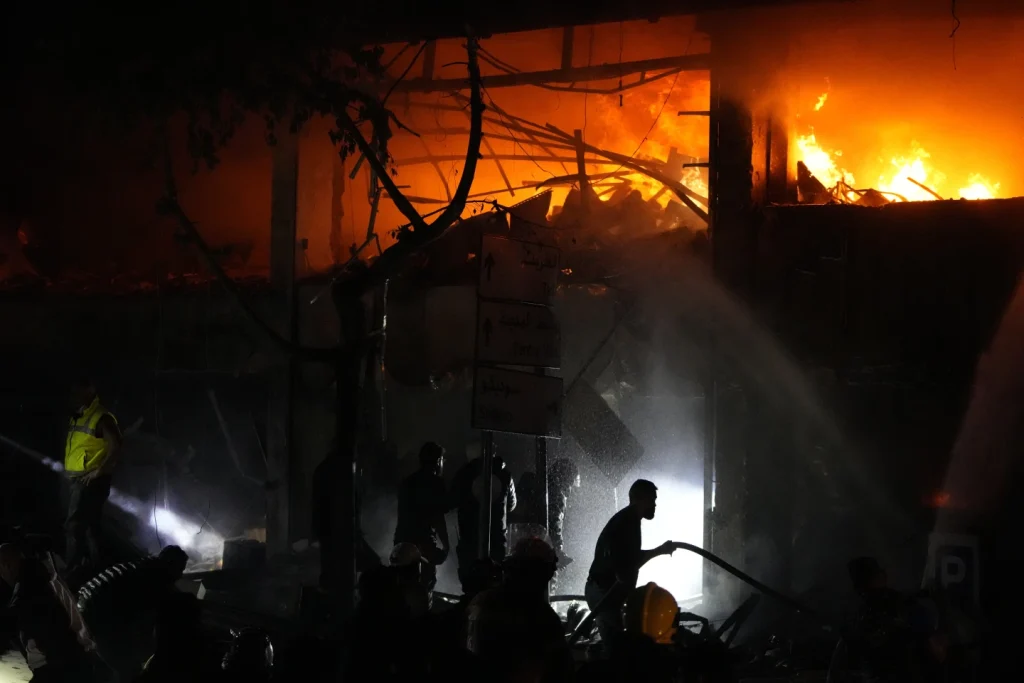
As the conflict between Israel and Hamas continues to intensify, concerns are mounting about the potential for further escalation, particularly in the northern border region, where Hezbollah, the militant group based in Lebanon, is growing more active.
Recent reports indicate that Hezbollah has been increasing its involvement in the conflict, potentially opening a new front against Israel. The situation remains fluid, with military and diplomatic efforts underway to prevent a broader regional war.
Over the past few weeks, Hezbollah has launched a series of rocket attacks on Israeli positions in northern Israel, prompting retaliatory strikes by the Israeli military.
These skirmishes, while limited in scope so far, have raised fears that Hezbollah might expand its involvement in the conflict, especially given its longstanding alliance with Hamas and its declared intent to support the Palestinian cause.
While Hezbollah’s actions have been confined to sporadic attacks, analysts warn that the group could become more emboldened as the violence in Gaza continues to rage.
The violence between Israel and Hamas has already resulted in thousands of casualties, with widespread destruction in Gaza. Israel’s military operations, aimed at weakening Hamas’s military infrastructure, have targeted everything from rocket launch sites to command centers.
Meanwhile, Hamas has fired thousands of rockets into Israel, causing civilian casualties and significant damage, despite Israel’s Iron Dome defense system intercepting many of the projectiles.
The U.S. and its allies have expressed concerns about the possibility of Hezbollah joining the fray more significantly.
The group, which is backed by Iran and has been a key player in the region for years, possesses a substantial arsenal of rockets and missiles. If Hezbollah were to escalate its involvement, the fighting could spill over into a much wider regional war, involving not just Israel and Lebanon but potentially Syria and Iran as well.
For now, the Israeli military is focused on the ongoing operation in Gaza, where it continues to target Hamas militants and infrastructure.
At the same time, Israeli forces are monitoring developments along the northern border, particularly in southern Lebanon, where Hezbollah operates.
Israel has made it clear that any significant attack from Hezbollah would lead to a full-scale response, though it remains to be seen whether the group will decide to open up a broader front.
Despite the violence, there are efforts underway to mediate a ceasefire between Israel and Hamas, although such attempts have largely been unsuccessful thus far.
The humanitarian crisis in Gaza continues to worsen, with hospitals overwhelmed and basic supplies in short supply. International pressure is mounting on both sides to halt the fighting and allow aid to reach those in need.
In response to the violence, Hezbollah has expressed its solidarity with Hamas and condemned Israeli actions in Gaza. The group’s leader, Hassan Nasrallah, has warned that any further Israeli aggression will provoke a stronger response from Hezbollah, though he has stopped short of formally declaring full-scale war.
While Hezbollah’s rhetoric has been inflammatory, the group has so far avoided confrontation on the scale of what occurred during the 2006 Lebanon War, when Hezbollah fought a month-long war with Israel.
The broader regional implications of this conflict are becoming increasingly clear. Lebanon, already grappling with political instability and an economic crisis, could be further destabilized by Hezbollah’s involvement in the fighting.
There are also fears that Syria could be drawn into the conflict, especially given the presence of Iranian-backed militias in the region.
Meanwhile, Iran’s role continues to loom large. The country has long supported Hezbollah and Hamas, and its involvement in the conflict, either directly or through proxy groups, could make the situation even more volatile.
In the international arena, the United States has reiterated its support for Israel, while calling for restraint from both sides. The U.S. has also worked with regional allies, including Egypt and Qatar, to mediate between Israel and Hamas, though a lasting ceasefire remains elusive.
Meanwhile, other world powers, such as Russia and China, have called for an immediate end to the violence and have expressed concern about the humanitarian crisis in Gaza.
As the conflict continues, it is unclear how much longer the situation will remain contained to Gaza and the northern border with Lebanon.
With Hezbollah’s growing rhetoric and the volatile situation in the region, the potential for a broader, regional war remains a real concern. International diplomatic efforts will likely intensify in the coming days and weeks, but the path to peace remains elusive for now.
Picture News
